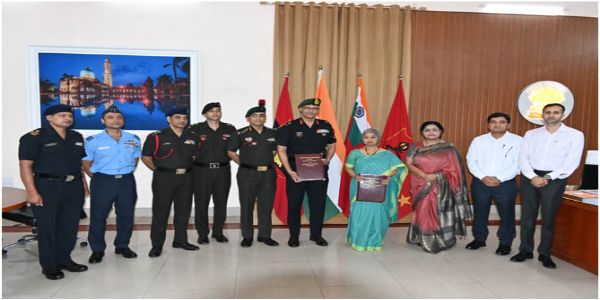
Kolkata, 1 July (H.S.) The recent controversy involving a former student leader of the Trinamool Congress Chhatra Parishad (TMCP), Monojit Mishra, has sparked widespread concern over politically influenced appointments in colleges across Kolkata. Mishra, the prime accused in a gang rape case, was employed as a temporary staff member at South Kolkata Law College, despite also practicing law at Alipore Court and facing multiple criminal cases.
According to police sources, 11 FIRs had previously been lodged against Mishra across various police stations, yet he continued to hold his college post until the latest allegations surfaced. His appointment had reportedly been approved by the college's governing body, led by TMC MLA Ashok Deb.
This incident has brought renewed scrutiny to recruitment patterns in state-aided colleges, where several former TMCP leaders or former student union office bearers have secured jobs—both temporary and permanent—since 2011, the year the TMC came to power in West Bengal.
Reports suggest that Ashutosh College, Surendranath College, Gurudas College, Manindra College, Yogesh Chandra College, and Acharya Jagadish Chandra Bose College have all appointed individuals with a past in student politics.
At Ashutosh College, a former TMCP leader is now employed as a head clerk, while a former General Secretary (GS) has been made accountant.
Surendranath College confirmed that at least four former student leaders, including a GS, are now working in non-teaching roles.
Other institutions have reportedly hired ex-student leaders as lab assistants, clerks, or lift operators.
Most appointments took place after 2011, and critics say they point to a clear trend of political preference in recruitment.
When approached for comment, college administrators largely downplayed the matter:
Manas Kabi, Principal of Ashutosh College, stated:
“They were appointed before I joined. I took charge in May 2023.”
Indranil Kar, Principal of Surendranath College, said:
“There is no issue with their employment. Former student leaders are familiar with college systems, and that makes management easier.”
Meanwhile, TMC MLA Ashok Deb, who chairs the South Kolkata Law College’s governing body, defended the practice:
“If someone has worked in student politics, should they remain unemployed? We are not giving them permanent jobs. Many of them have dedicated years to political activity.”
Education observers have expressed concern over the implications of these appointments. Purnachandra Maity, former president of the All Bengal Principals' Council, stated:
“These positions are not sought for the small salaries. They offer access to admission processes and administrative contracts—areas where significant profits can be made.”
The recent rape case involving Monojit Mishra has reignited debate around political interference in educational institutions. Critics argue that such interference not only undermines the merit-based recruitment system but also compromises the safety and trust of students.
While many appointees continue to serve in their respective roles, the case of Monojit Mishra has raised uncomfortable questions about how college staffing decisions are being made, and whether political loyalty is being prioritized over competence or background checks.
As public scrutiny intensifies, education experts and student groups have called for a transparent review of appointments made in state-aided colleges over the past decade.
---------------
Hindusthan Samachar / Priyanka Pandey






